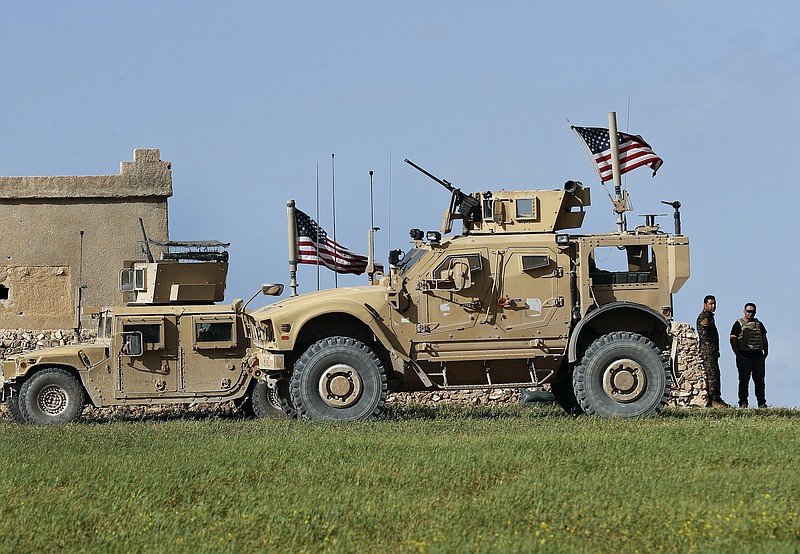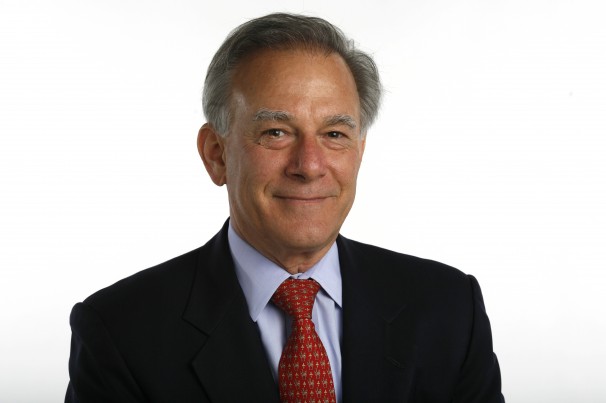WASHINGTON - Asked to describe U.S. policy toward Syria after President Trump's sudden decision on Dec. 19 to withdraw U.S. troops from that country, several key officials use the same two words: "total chaos."
There's another phrase that comes to mind in assessing Trump's move: snatching defeat from the jaws of victory. American-backed forces were on the verge of eliminating the Islamic State in northeast Syria when Trump made his surprise announcement, which went against the recommendations of all his senior diplomatic and military advisers.
Trump did it anyway, for reasons that remain mysterious to some of his subordinates. The trigger was a Dec. 14 phone call from Turkish President Recep Tayyip Erdogan. Trump had been briefed to warn the Turkish leader not to invade Syria, as he had been threatening to do. But Trump instead told Erdogan: "You know what? It's yours. I'm leaving."
Trump's idea was to let Turkish forces take over the American-backed campaign against the Islamic State in northeast Syria. But senior military officials say the Turkish alternative doesn't add up, quite literally, in terms of numbers.
The Turks want to replace a Kurdish-led force of about 60,000 fighters, known as the Syrian Democratic Forces. They have claimed to U.S. officials that they have 50,000 Syrian opposition forces under their control, but that's wildly overstated. The Turkish-backed opposition is closer to 5,000, U.S. officials say, and many have jihadist connections.
The most dangerous consequence of Trump's Turkish solution is that it could re-ignite the Islamic State. The problem starts with about 780 foreign fighters who are now being held by the SDF in a half-dozen prisons in northeast Syria. The SDF commander, Gen. Mazloum Abdi, told me bluntly in an interview 10 days ago that he wouldn't be able to hold the prisoners if Turkish forces invaded the areas he controls.
These jihadists prisoners are the worst of the worst, and their release could mean mayhem. But so far, almost none of the 48 countries from which the fighters traveled to Syria has been willing to take them back. Britain, France, Belgium and other European nations that have been attacked are said to have refused, claiming they don't have legal authority or making other excuses. Macedonia has agreed to take a handful, as has Lebanon. Several North African nations are considering repatriation requests, and a Central Asian country might eventually take as many as 100.
Trump's apparent assumption, initially, that Turkey would take the prisoners could be almost as dangerous as letting them go free. The Turks have allowed jihadist fighters to crisscross their border since the Syrian civil war began in 2011, U.S. officials say. These officials argue that Erdogan's real nemesis in Syria is the Kurdish militia, which he calls a terrorist organization, rather than the jihadists.
Erdogan has many links with the Trump team. Michael Flynn was a well-paid but unregistered Turkish lobbyist before he briefly became Trump's national security adviser. Rudy Giuliani, Trump's personal lawyer, tried in 2017 to broker a deal to free Reza Zarrab, a Turkish-Iranian businessman with links to Erdogan's family. Trump himself has embraced Erdogan as a kindred spirit when they've met at summits.
Amid all this policy turmoil, the Kurds just keep on fighting the Islamic State. A U.S. official told me Thursday that the SDF had suffered 80 casualties, including 25 dead, in heavy fighting by its 5,000 fighters over the previous 72 hours in the Euphrates Valley. It had also pushed to within 15 miles of the Iraqi border. A brief ray of hope for the Kurds is that Trump has agreed to carry out the withdrawal of U.S. Special Operations Forces from Syria over the next four months, and Turkey has promised it won't attack until the SDF's American advisers leave.
The Kurdish fighters "do what they promise to do," said one U.S. official who has worked closely with them. The same, alas, cannot be said of the Trump administration.
Washington Post Writers Group

